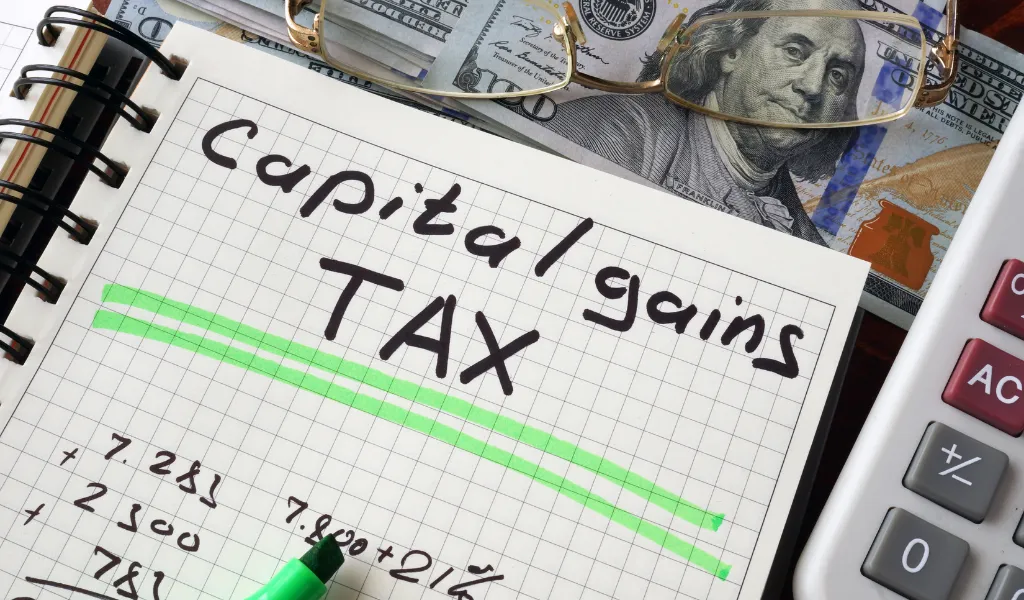Most people wish to leave their money to their children or grandchildren after their passing. If you plan on giving away money to your family, then you must the know the rules surrounding such gifts. Does tax apply on cash gifts? If so, how much? Under which situation am I exempt from tax? Do I need to declare cash gifts to HMRC? You can find all that out and more through this guide.
First, let’s discuss the rules regarding gifting money and how gift tax applies.
What Rules Apply to Gifting Money?
According to the rules set by HMRC, anyone can gift a specific amount of money within a certain period. This is not subject to tax. However, anything that goes beyond the threshold and circumstances is taxable, like estates. This way, people cannot avoid IHT entirely.
Following are the circumstances in which gifts to children and grandchildren are tax free:
- You give away less than £3,000 total in a tax year.
- You survive seven more years after giving the money.
- The gifts are less than £250 per person.
- You gift money for your child’s or grandchild’s wedding.
If you give a gift to anyone other than your spouse or a charity, then gift tax applies. The rate of which is up to 40%.

What is Gift Tax in the UK?
In situations that are not exempt from tax, HMRC levies Gift Tax on financial gifts to people.
If you understand IHT, then you will comprehend gift tax, as it is the form of IHT. In case you pass away in less than three years of giving the money, then 40% gift tax rate applies. However, you can find out the exact tax rate according to the time of passing and the tax paid after your passing. Additionally, this includes the rules of Potentially Exempt Transfers. It is important to know the answer to the question: do I need to declare cash gifts to HMRC.
Gifts That are Tax-Free
There are ways to gift money to your children or even grandchildren without owing tax on them. You can do so in the following ways:
Civil Ceremonies or Weddings
As a parent of the child who is getting married, you can give them up to £5,000. Whereas a grandparent can give up to £2,500.
Annual Exemption
You can make gifts of up to £3,000 in each tax year for anyone you like. Tax is not applicable to them. Furthermore, you can pass on £6,000, if you did not use this allowance. Nevertheless, the exemption does not carry forward. It only carries forward one tax year. So, do I need to declare cash gifts to HMRC?
Small Gift Exemption
You can give away gifts on birthdays or at Christmas of up to £250 per person. That is, if the person receiving them did not already receive a gift, that was part of your annual exemption.
Regular Payments from your Taxed Income
If you wish to further help your child or grandchild, you can do so by contributing to their living costs. You can make regular payments from your taxed income. Please note that conditions apply for the child or grandchild to not pay tax on the gifts. Consistency is necessary. For example, if you pay your child’s rent monthly. Or if a grandparent pays for their educational fees. Moreover, the money must come from your excess income. Make sure you can provide proof to HMRC that giving these gifts does not impact your standard of living. This way they know that people are not giving away money to their children to avoid paying tax. Hence, the question arises: do I need to declare cash gifts to HMRC.
Additionally, if you give other gifts to your children or children, then they are Potentially Exempt Transfers. In case you pass away within seven years of giving the gifts, they become part of your estate. Then, tax applies accordingly. If you survive beyond that period, then tax does not apply.
How Much Money Can I Give to My Grandchildren?
Grandparents can make a huge difference to their grandchildren’s futures. They can do so by helping them cover heavy costs such as educational fees or even deposits for purchasing homes. Please note that from the financial perspective of donors, there are also long-term advantages as well.
According to the current IHT exemption rules, up to £3,000 in anyone tax year per grandparent is exempt. Suppose they do not gift the entire amount in the same year. In that case, the remaining amount transfers into next year’s allowance. Nevertheless, you must remember that unused allowances do not move forward and are lost after this period.
Furthermore, you can give away an unlimited number of £250 presents in each tax year. That is, if each time you do, so the beneficiary is a new individual.
Let’s talk about wedding and civil partnerships. If a grandparent gives a gift to their grandchild on such an occasion, then it is exempt from tax. There is a limit of up to £2,500. The exemption increases to £5,000 if your own child is the one getting married. Therefore, you must know the answer to the question: do I need to declare cash gifts to HMRC.
In a single tax year, you can give your children up to £3,000 as gifts. They are tax free. These gifts are your yearly exemption. When giving money to your children or any other family member, you can give as much as you wish. However, if you want the gift to remain tax free, you must survive seven more years after giving it. This seven-year rule for giving gifts is called Potentially Exempt Transfer (PET). You may still owe Capital Gains Tax when you give money to your children.
What is a Potentially Exempt Transfer (PET)?
What can you achieve through a PET? Well, through a Potentially Exempt transfer, you can make donations or gifts of any amount. These gifts are exempt from IHT. That is, if the person remains alive for a further seven years.
Now, the question becomes, what happens if the person does not survive that long? In that case, PET is a Chargeable Consideration. Which means they add it to the estate’s value for IHT purposes. Then, if the total amount is over the IHT threshold, you may end up paying the IHT.
Suppose the donor passes away within the seven-year period of PET’s completion date. Then, a retrospective charge applies. Furthermore, tax applies to the value of the PET. The value is that as it was on the actual date. The basis for which is the donor’s seven-year collective total. However, they use the applicable death rates at the time the person passed away. The question remains: do I need to declare cash gifts to HMRC.
What is Taper Relief and How Does it Work?
Despite what the name suggests, taper relief is not a relief. It is simply a percentage reduction in the tax payable. Which means that it does not reduce the gift’s capital value. As a result, you cannot claim taper relief if there is no tax payable on a gift on death.
If the donor survives a minimum of three years, then taper relief reduces your IHT bill. However long a person survives after gifting determines the amount of relief. Taper relief is calculated in the following way:
| Time Between Gift and Death | Rate of Tax on Gift |
| 0-3 years | 40% |
| 3-4 years | 32% |
| 4-5 years | 24% |
| 5-6 years | 16% |
| 6-7 years | 8% |
When making lifetime transfers, taper relief provides tax savings to an extent. Yet, when calculating IHT on an estate, the full value is included. If an estate’s value is above £325,000, then IHT applies at 40%. This means you should factor in the total gift amount when you plan. Thus, it is important to know the answer to the question: do I need to declare cash gifts to HMRC.
Lifetime Transfers
When the sum of your chargeable lifetime transfer in the past seven years goes above the threshold of £325,000 IHT, then the lifetime rate of 20% applies to you.
For example, the grandparents are the transferor, then they are subject to tax. However, it is possible that the transferee, which are the grandchildren, may end up paying. The amount paid is impacted by whoever pays the tax.
Six months after the end of the month in which transfer is done, tax becomes due. Suppose transfer happens before 1 October, but after 5 April. Then, the end of April in the next tax year is the due date for tax.

Do I Need to Declare Cash Gifts to HMRC 2023?
Now, the question arises whether you need to declare your cash gifts to HMRC. There are some exceptions. For example, if they are small cash gifts under £250, then you do not need to declare them. Therefore, if you wish to give away some money as a gift to your family member, you can do so easily. You do not have to worry about the process of notifying HMRC.
Additionally, you do not need to declare any gifts that you gave away within the £3,000 annual exemption. So, the good news is that you can give up to up to £3,000 each tax year without any declaration. Thus, you can give cash gifts without any trouble.
Nevertheless, you must bear in mind that any gift over this threshold is likely subject to tax. Which means you will need to declare it to HMRC. If you do not declare it, then you will end up paying hefty fines. It is best to keep a record of large cash gifts and report them. This way, you can avoid penalties or any such issues.
When dealing with financial matters, it is ideal to remain transparent. You should follow the guidelines provided by HMRC and stay informed. This will ensure your compliancy with tax regulations and an efficient process. Now, you know the answer to the question, do I need to declare cash gifts to HMRC.
Alternate Ways of Gifting
The good news is that there are plenty of other tax-efficient methods to support your grandchildren’s futures. You can look at the following alternative ways of gifting:
Contributing to a Junior ISA
If you are looking for an ideal way to provide for your grandchildren, then Junior ISA is the right choice. Your grandchildren can gain access to it once they turn 18. It is a long-term savings account. Furthermore, it allows contributions up to £4,260 per year. You have the options of cash, share and stocks. Not to mention, it offers tax-free benefits.
Passing on Your Pension
You also have the option to give the names of your beneficiaries to your pension provider. By doing so, you decide who will inherit your pension once you pass away. It is up to you how much you will give to each beneficiary. The number of nominees is also your decision. Also, your beneficiaries will not pay inheritance tax. This is because pensions are considered as belonging outside of your estate.
Nevertheless, you must remember that your pension may not pass on directly to your beneficiaries. It all depends on circumstances. For example, your age at the time of passing and the type of pension you have. Also, whether you have started to receive it yet.
Contributing to a Child’s Pension
Parents and legal guardians can establish a pension on their child’s behalf. Moreover, you or anyone else can contribute to it. The maximum amount is £2,880 per year. The government will match this amount through tax relief. Once the child turns 18, they will receive the pension automatically.
Undoubtedly, this is an excellent way to safeguard long-term financial security. Furthermore, your grandchildren will prioritise their pension from a young age because of this. Not to mention it is a tax-efficient method. Your children can save for their future. There are benefits of tax relief and compound interest. They can increase the value of a small savings account.
Paying Fees and Bills
If invoices or bills arrive in your name, then they are not taxable. This is because they are personal lifestyle costs. It is not a gift from your estate. Furthermore, you can pay for a child’s educational fees. Or you can also bear the costs of their extracurricular activities or hobbies.
In case you need any advice on how to manage your finances, then it is best to reach out for professional help. Thus, you need to know the answer to the question: do I need to declare cash gifts to HMRC.
Protect your Gifts Through Trusts
In case you have concerns regarding the usage of your gift to a family member, then trusts are the way to go. Through Trusts you gain control and can keep your gift within the family bloodline.
Moreover, for trusts, the same seven-year rule is applicable. However, you should know the type of Trust you are using for your gifts.
Any gift you make to a Bare Trust is going to fall into the category of Potentially Exempt Transfer. Whereas any gift you make to a discretionary Trust that is over the Nil Rate Band is classed as a Chargeable Lifetime Transfer. An immediate inheritance tax charge applies to them. It is ideal to reach out for expert financial advice, as this is a complex matter.
Conclusion:
To conclude, you can give away money as a gift to your children and grandchildren. It is tax free to an extent. You must know the rules regarding gift tax. There are plenty of circumstances in which there are exemptions, so make sure to benefit from them. Furthermore, if the amount exceeds the threshold, then you may end up paying tax. Thus, it is important to understand the process of giving money as a gift to your children or grandchildren.








